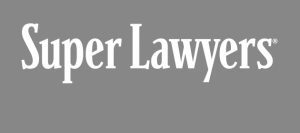
September is here, meaning the Major League Baseball regular season will soon be coming to an end. The MLB postseason is set to begin September 30th with the Wild Card Playoff games that determine which wild card teams will advance to the Division Series in both the American and National Leagues. This year, a new team will be crowned the World Series champion as last year’s victor, the Boston Red Sox, will not be in the postseason. While the playoff field is not set yet, some of the frontrunners in the American League are the Los Angeles Angels of Anaheim, led by Mike Trout; the Baltimore Orioles, featuring Adam Jones; and the Oakland Athletics, with Josh Donaldson. From the National League, the Washington Nationals, featuring Stephen Strasburg; the Los Angeles Dodgers, including Yasiel Puig; and the St. Louis Cardinals, with Adam Wainwright are among the teams that hope to claim the title. Continue reading “New York Law Firm Advertising Spotlight: MLB Postseason”
Tag: New York
Attorney Advertising Spotlight: Advertise During the 2014 FIFA World Cup
June 12th marks the start of one of the most unique and popular sporting events in the world: the 2014 FIFA World Cup. Thirty two different teams from six continents will compete for the prestigious distinction of being the World Cup champion. Among the notable teams are the United States, defending champion Spain, and host country Brazil. The month-long tournament will feature the brightest stars of the game, including Lionel Messi (Argentina), Cristiano Ronaldo (Portugal), and Franck Ribery (France). The roster for the United States is not finalized yet, but will likely feature World Cup veterans such as goalkeeper Tim Howard and midfielders Clint Dempsey and Landon Donovan. The World Cup has been steadily growing in popularity in the United States and is sure to attract a large and diverse audience in New York and on Long Island. Law firms will have the opportunity to capitalize on the excitement with television advertising spots from Cablevision and Verizon FiOS.
Cablevision and Verizon FiOS are both offering special advertising packages for the 2014 FIFA World Cup, which will be broadcast on ESPN, ESPN2, and ESPN Deportes. The World Cup attracts a predominantly male audience, ages 25-54, from various demographics. Law firms also have the ability to choose individual games in which to run a commercial rather than purchasing an entire package. Prices for individual games may vary according to the time of the match and which teams are playing. Most packages contain additional spots on a wide array of general channels offered by Cablevision and Verizon FiOS.
The World Cup package with Cablevision will consist of seventy eight, 30-second commercial spots which will air on ESPN or ESPN2 during World Cup matches, World Cup Live, and SportsCenter. The package will also include 50 spots which will mention a law firm, and its tagline, as a local sponsor of the World Cup at the end of the promos. For example, “The World Cup on the networks of ESPN is sponsored locally by (law firm’s tagline here).” These spots will be run during general timeframes on various Cablevision channels.
The prices for the World Cup package with Cablevision are $2,500 for the Huntington zone, $2,800 for the Babylon zone, $3,600 for the Riverhead zone, $4,000 for the Brookhaven zone, $8,000 for the Hauppauge zone, $5,000 for the North Nassau zone, and $9,500 for the South Nassau zone.
Verizon FiOS has three separate packages for the World Cup, broken down by channel. The ESPN package will contain one spot per game for each of the 32 games that ESPN broadcasts during the first round. There will also be 58 additional spots which will run on general channels throughout the first round of the tournament, bringing the total to 90 spots. The ESPN2 package will contain 45 total spots. Fifteen of the spots will air during first-round games on ESPN2 and the remaining 30 are general spots. The ESPN Deportes package contains 56 spots, all of which will be run during games in the first round.
The prices for the ESPN package are $680 for the RCN zone (covers select areas of Queens), $1,090 for the North Nassau zone, $1,590 for the South Nassau zone, and $1,324 for the Suffolk zone. The ESPN2 package costs $775 for all of New York, except the RCN zone, which costs $395. The ESPN Deportes package costs $1,150 for all of New York. Verizon FiOS is only offering four ESPN and ESPN2 packages per zone and two ESPN Deportes packages, so space is limited.
The World Cup is still over a month away, which means there is still time to produce a 30- or 60-second commercial specific to the World Cup, or a general commercial if your office does not currently have a commercial to run. PR4Lawyers’ experienced staff offers broadcast-quality commercial production to help you through the process.
If you are interested in producing a commercial, purchasing an advertising package, or for further details regarding rates and pricing, please contact PR4Lawyers at 1-866-PR4Lawyers or email info@pr4lawyers.com.
NY Metro Super Lawyers Nominations Being Accepted
Nominations are currently being accepted for NY Metro Super Lawyers. Now is the perfect opportunity to recognize your colleagues.
Super Lawyers is a rating service of outstanding lawyers from more than 70 practice areas who have attained a high degree of peer recognition and professional achievement. This multi-phased selection process consists of independent research, peer nominations and peer evaluations. Each candidate is evaluated on 12 indicators of peer recognition and professional achievement.
NY Metro Super Lawyers is an exclusive group. No more than 5% of attorneys from the New York metropolitan are selected. Super Lawyers is also published as a special section in leading city and regional magazines across the country.
To nominate someone, please go to https://www.superlawyers.com. This will take you to the login page. If you already have an account with Super Lawyers, then enter your login information. If you need to set up an account, go to https://my.superlawyers.com/index.html and click on “First time user? Click here to request access.” Continue reading “NY Metro Super Lawyers Nominations Being Accepted”
Attorney Advertising Rules: A Refresher
On February 1, 2007, the NYS Office of Court Administration adopted new rules regarding attorney advertising. These rules have been incorporated into the New York Rules of Professional Conduct which became effective April 1, 2009. The new rules and the comments now found in Rules of Professional Conduct more clearly define what is, and isn’t, acceptable for attorney advertising and defend the integrity of the profession by establishing clear guidelines. The Rules favor attorneys who wish to build their practice through responsible advertising.
The good news is that the new attorney advertising rules, which were revamped just over two years ago, only made minor changes affecting attorney advertising. Nevertheless, it is a good time to refresh one self on the Rules. The following summary highlights some of the Rules’ major provisions.
Sections 7.1 v. 7.3(b) Advertising v. Solicitation
The Rules first define what types of communications may be considered advertisements, and then go on to differentiate between what is an advertisement versus what is considered a solicitation. An advertisement is a communication primarily designed to attract new clients. Thus, advertisements directed at existing clients and other lawyers are exempt. Advertisements, unlike solicitations, do not trigger filing requirements. The Comments distinguish between advertisements and solicitation by stating that solicitations fulfill the following:
- Advertisement is initiated by a lawyer
- Purpose is persuading recipients to obtain the lawyer
- Motive is to make money
- Directed to or targeted at a specific recipient or group of recipients, their family members or legal representatives
Generally, solicitations differ from advertisements in that solicitations are advertisements placed and distributed using fixed lists, and are usually sent as direct mail. If the ads only apply to a finite group of victims, solicitations can also include Web, newspapers and TV.
Section 7.1(a) Advertisements Shall Not Be False, Deceptive or Misleading
Section 7.1(a) states that a lawyer shall not disseminate an advertisement that contains false, deceptive or misleading statements, or that violates any rule. Truthful statements that are misleading are also prohibited. The Comments provide examples: The statement “I have never lost a case” may be truthful, but would be misleading if the lawyer had not lost because virtually all the cases they handled were settled. Another example of a truthful, misleading statement would be, “The average jury verdict for a given year was $100,000.” This may be a true average, but is misleading if the only reason for the average is that a large number of jury verdicts were very small and one was $10,000,000.
Section 7.1(b) Advertisement Contents
Under the new rules, there are a number of details attorneys can advertise about their services. Provided that the client has given prior written consent, attorney advertisements may include the names of clients that are regularly represented. Lawyers and firms can provide legal fees for initial consultation and contingent fee rates in civil matters in their advertisements, including “no fee” and “no fee unless recovery.” The advertisements may also include non-legal services provided by an entity owned and controlled by the lawyer or firm.
Section 7.1(c) Advertisement Restrictions
Under Section 7.1(c), some key provisions have been overturned, but the new rules do not note this. The provision stating that lawyers could not use endorsements from clients regarding a matter still pending was overturned. However, it must still be disclosed if a client received compensation for an endorsement or testimonial that was used in an advertisement. Advertisements must also disclose if actors were used or if the ad is fictionalized. Though prohibiting the use of nicknames, monikers, mottos, or trade names that imply results was overturned, attorney advertisements may not resemble legal documents.
Section 7.1(d) Advertisement Contents Requiring Factual Support
Legal ads may contain statements that are reasonably likely to create expectations of results and statements describing the quality of a lawyer’s services. These statements can also be in the form of testimonials from current or former clients, or as comparisons of the lawyer’s services to other lawyers. However, the statements must be factually supported at the date of dissemination and accompanied by the disclaimer such as, “Prior results do not guarantee a similar outcome.”
The Comments explain that characteristic descriptions of the lawyer or firm that are not comparative and do not involve results are permissible – for example, “hard-working, dedicated, compassionate.” However, comparative descriptions that cannot be factually supported could be misleading – such as “best, most experienced, hardest working.” Including attorney ratings on ads is permitted, provided they contain a past results disclaimer. Any ratings must be bona fide, though – unbiased and un-discriminatory. They must be based on objective criteria or legitimate peer review and unbiased by the rating service’s economic interests, fairly considering all lawyers within the pool.
Section 7.1(f) “Attorney Advertising” Label
The Rules state that all ads, other than radio, TV, directory, newspapers, magazines or other periodicals, shall be labeled “Attorney Advertising” on the first page or home page. If the advertisement is a brochure or postcard, the label should appear right on it. If the ad is sent as an e-mail, “ATTORNEY ADVERTISING” needs to appear in the subject line.
In sum, attorney advertising labels are not necessary for obvious advertisements, such as TV, newspaper and billboard ads. Advertisements sent to current clients are also an exception to this rule, and do not require advertising labels, as well as ads to former clients if the ad is relevant to earlier representation.
Topical newsletters, client alerts or blogs intended to educate recipients about new developments in the law are not considered advertising, nor are promotional items such as mugs and t-shirts. However, newsletters, alerts, and blogs that contain information predominantly about the lawyer or firm are generally considered to be advertising. Re-distribution of a newspaper article is also advertising if the primary purpose is to obtain clients. In this instance, the advertisement must comply with the disclaimer requirements and correct misinformation.
Section 7.1(k) Attorney Approval
Under the new rules, all attorney advertisements must be pre-approved by the lawyer or firm and retained for three years, with the exception of e-mail and computer-accessed communications and advertisements, which only need be retained for one year. Web sites must be retained for one year from the time of publication, re-design, or extensive content change. This rule also requires that a copy of ads or communications be made at least once every 90 days and retained for one year.
Section 7.1(m) Advertising Fees
This section states that if any fees are advertised, the lawyer or firm will be bound by that fee for a period of time, depending on the frequency of the ad. If the ad frequency is more than once per month, then they are bound to that fee for no less than 30 days. For ads running monthly or longer, then that fee must apply until the next issue. For example, a fee advertised in a phone book ad would stand until the next phone book is distributed. If there is no succeeding issue or advertisement, then the lawyer or firm is bound to the advertised fee for a reasonable time, but no less than 90 days.
Section 7.1(p) Advertising Fees
All ads must comply with 488(3) of Judiciary Law when discussing fees. This provision provides that ads cannot state or imply that the lawyer or firm’s ability to advance or pay costs is unique or extraordinary unless it can demonstrate that its fees are objectively unique or extraordinary. This does not prevent the lawyer or firm from discussing fees or expenses, but simply prevents any implication that fees and expenses are out of the ordinary.
Section 7.1(q) New Addition – Public Education
Communications that are educational in nature and invitations to seminars are arguably exempt from the in-person solicitations rule, provided the primary purpose is educational in nature. The following provision has been added to the Rules: “A lawyer may accept employment that results from participation in activities designed to educate the public to recognize legal problems, to make intelligent selection of counsel, or to utilize available legal services.” The provision represents the only major change made in the Rules since they were issued in 2007.
Other Highlights
Further details that should be noted from section 7.1 is that public relations programs are generally not considered advertising, unless the recipients or attendees are expressly encouraged to hire a lawyer. Nor are non-profit sponsorships considered advertising. Talks and writings done by lawyers for non-lawyers should caution the audience not to attempt to solve individual problems on the basis of the information contained therein.
Section 7.3(a) Solicitations
Rule 7.3(a)(1) states that a lawyer shall not engage in a solicitation through in-person, telephone, or real-time computer-accessed communication, unless the recipient is a close friend, relative, former client or existing client. Attorneys should note that the in-person solicitation ban has been extended to chat rooms and instant messaging.
Rule 7.3(a)(v) also states that a lawyer shall not engage in a solicitation where the lawyer expects, but does not disclose, that the legal services necessary to handle the matter will be performed primarily by another lawyer who is not affiliated with the soliciting lawyer as a partner, associate or of counsel. This Section refers to solicitations only, and does not ban advertisements in the circumstances.
Section 7.3(c) Filing Requirements
Solicitations must be filed with the disciplinary committee of the jurisdiction and copies must be retained for at least three years.
Section 7.3(e) Restrictions on Soliciting Personal Injury/Wrongful Death Victims
Section 7.3(e) prohibits soliciting personal injury or wrongful death claimants for 30 days, or 15 days if there is a filing requirement within 30 days. Section 7.3(e) does apply to the defense.
If the ad makes no expressed reference to a specific incident and is disseminated, it does not violate the rule, unless directed to a specific recipient with knowledge that they are a victim, even if the ad is part of a mass mailing. In these circumstances, the in-person solicitation rules apply, even if the recipient is a close friend, relative, or former client.
Section 7.3(f) Disclosure of Learning Identify
If the lawyer or firm is soliciting to a pre-determined recipient and was prompted by a specific occurrence involving or affecting the recipient, the solicitation shall disclose how the lawyer obtained the identity of the recipient and learned of the recipient’s potential need for legal services.
Section 7.5(e) Domains and Phone Numbers
According to Section 7.5(e), a lawyer shall not practice under a trade name, a name that is misleading as to the identity of the lawyer, or lawyers. practicing under such name, or a firm name containing names other than those of one or more lawyers in the firm. The exception here is deceased or retired lawyers, whose names may still appear in the firm’s name. A firm may use the title “legal clinic,” so long as the attorney names are included.
The Rules state that a lawyer or law firm may utilize a domain name that does not contain the name of the lawyer or firm, provided that all the pages include the actual name of the firm, the firm does not engage in practice using the domain name, the domain name does not imply an ability to get results, and the domain name does not violate another rule.
A firm’s telephone number may also contain a domain name, nickname, moniker or motto that does not otherwise violate a rule. For example, 1-800-ACCIDENT, HURT-BAD, and INJURY-LAW are permissible. The Rules prohibit phone numbers like 1-800-WINNERS, WIN-BIG, or GET-CASH, since they imply an ability to get results.
However, since the prohibition on use of monikers/nicknames that imply results was overturned, it would appear that both domains and phone numbers like those listed above would now be permissible.
Contact PR4Lawyers today to learn more about our comprehensive and customized attorney marketing solutions at (631) 207-1057, or email: johnzaher@theprmg.com






